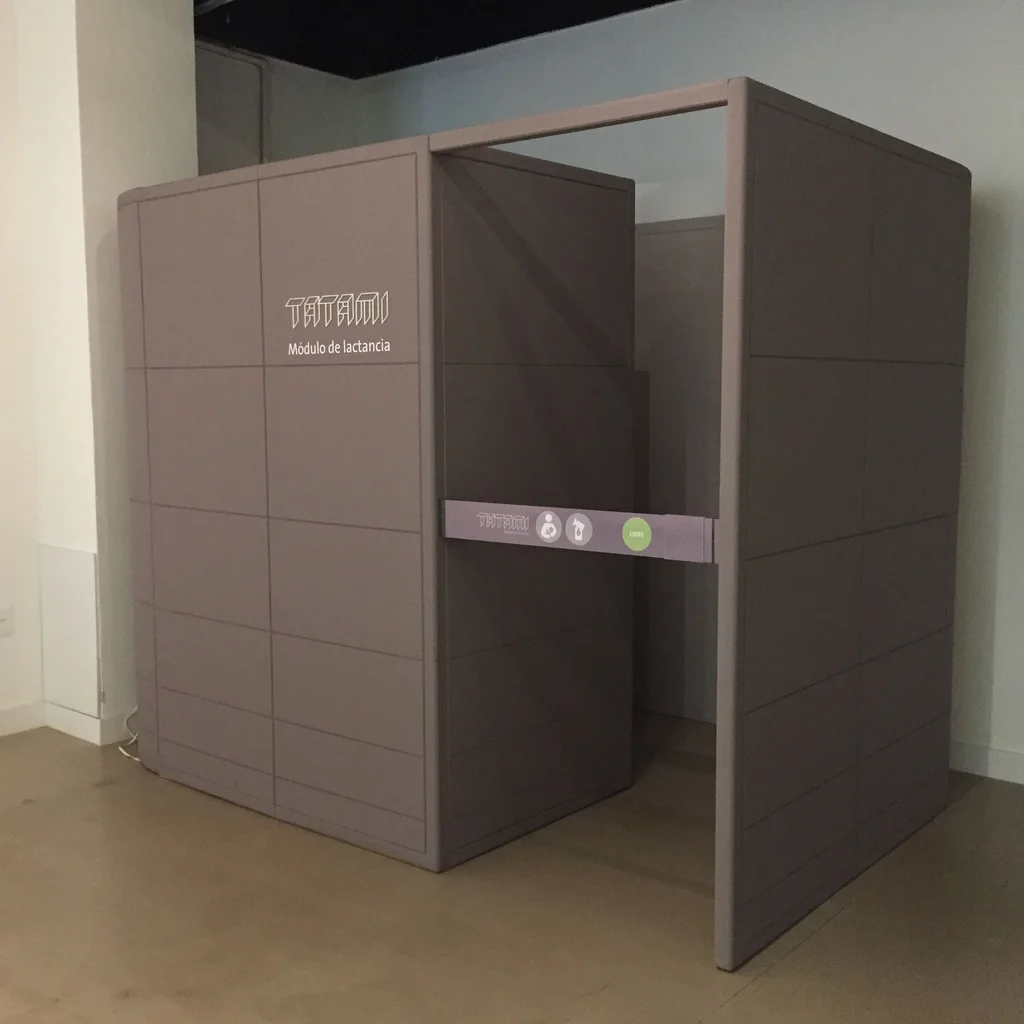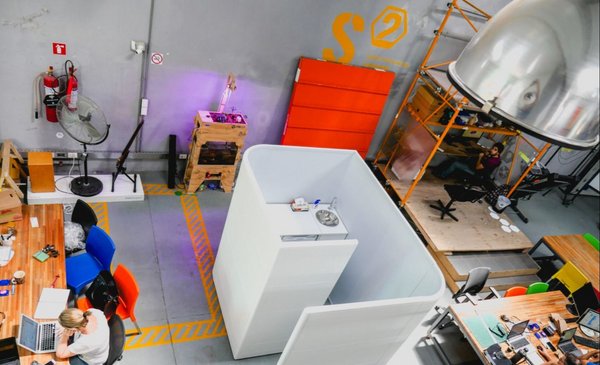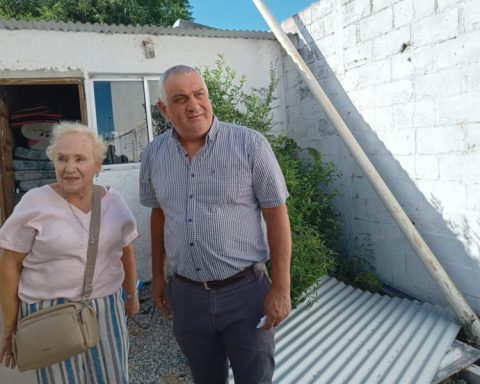In August 2017, Law 19,530 was approved, which requires public and private organizations in which a minimum of 50 people and/or 20 women work or study, to have lactation rooms. This space must ensure privacy, security, availability of use, comfort, hygiene and easy access for those who use it both to breastfeed and to express and store breast milk.
In that same year —encouraged by the enactment of the Nursing Rooms Law—, entered the market Tatami: a company dedicated to the manufacture, rental and sale of special modules to enable breastfeeding in companies.
The product is a private modular room with capacity for one woman at a time that includes a white melamine countertop with a sink, a high-density foam seat upholstered in aquaclean fabric, a power outlet for a milking machine and a freezer for storing milk. expressed milk during the day. These are the requirements established in the legal regulations.
tatami
Tatami lactation modules
“Before the launch of the brand we work on research to make the appropriate modules”, he told Coffee and Business one of Tatami’s partners, Patricia Román. She, along with her three colleagues —Marie France Bourgeois, Carolina de León and Pelayo Soria— wanted to work on a project with a purpose, so it was attractive to find a way to promote lactation rooms in companies, and do it well.
The product had to be a solution to a two-sided problem: the need for women to have a lactation room in their workplaces and the difficulty of companies in providing this service.
They worked for a year with national industrial designers to create a project that meets their objectives and they achieved the current piece, which, in addition to complying with government regulations, is “aesthetically beautiful” for companies.

tatami
Tatami lactation modules
standing modules
At the moment, there are 30 modules established in a total of 16 companies. This is so because some opt for more than one module for their offices.
What’s more, there are rented rooms. Tatami owners saw a market niche in the rental of lactation rooms because companies do not always have employees who need the module and do not want to have the piece constantly in their offices.
To rent, the service is offered for a minimum of three months, but there is no maximum time.
On the other hand —and because over the years the project evolved—, Tatami offers the conditioning of spaces in companies. This means that, in a room that has no use, a lactation room is set up. For that, the required elements are placed according to the aforementioned law 19,530.
“There is no similar solution in Uruguay”, assured Carolina de León and pointed out: “Obviously each company can prepare its own room, but this is a solution in hand so it has added value”.
growth pause
Since the company entered the market until 2020, the level of sales depended on how often the law was mentioned. “Every time the government and the media talked about the law’s requirement, we had more inquiries and sales were activated,” explained Román.
And for a long time the issue was on the agenda. Until 2019, Tatami partners visualized a good balance between the investment to make the product and profits. However, with the arrival of the pandemic this ended.
On the one hand, the ministries that were in charge of supervising the regulations —Ministry of Public Health and Ministry of Labor and Social Security— focused on the health emergency.
For the other, remote work eliminated the interest of companies to buy the modules. “We were doing well and we envisioned a very good 2020, but as of March of that year we did not generate more sales,” said Román. “The business went hand in hand with the sanitary measures that were taken due to the pandemic,” said De León. “The non-attendance was against our business,” he added.
Then, the projections of the company changed.
Nevertheless, With a gradual return to normality in the business world, they hope to return to pre-pandemic levels and return to being a profitable business.
“The idea is to maintain the company until it gets out of this situation because as the companies get stronger again, the business will recover,” the partners assured.
From Uruguay to the region
Within Tatami’s plans in 2019, there was the internationalization of the brand. According to Román and De León, the firm received inquiries from neighboring countries for what they were going to start selling to them: “We saw that there were similar laws in other countries in the region, so we wanted to internationalize the module”Roman commented.
With this objective, they carried out a new design of the module that is scalable and at the same time complies with regulations at the regional level.
Everything was ready to start marketing, but the pandemic arrived and inquiries dropped. Now, Tatami is resuming its slope: to innovate with the scalable module.
For the partners of the company, the next step in the business is internationalization when the economy in the region recovers.














